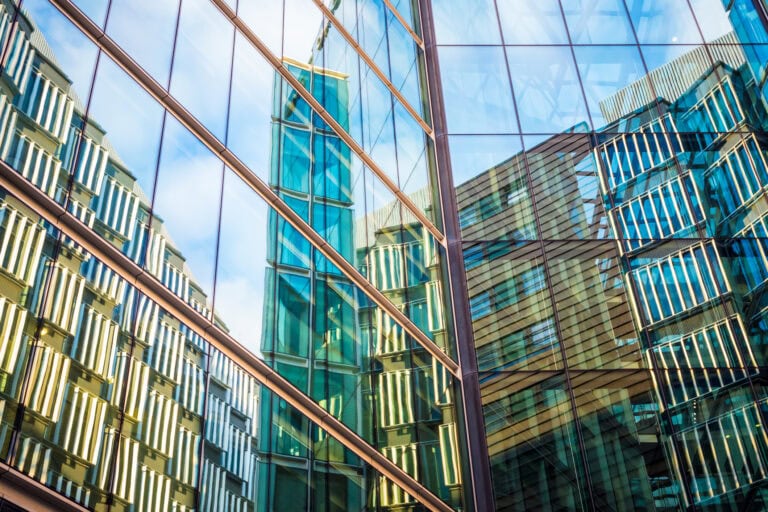Why is social value so crucial when developing and managing commercial real estate?

Traditionally, commercial real estate investments have been evaluated primarily based on their financial returns and market performance. However, the landscape of commercial real estate is evolving rapidly, driven by a growing emphasis on sustainability and responsible business practices. This shift places people, wellbeing, and communities at centre stage, and social impact is emerging as a key determinant of asset value and investment potential.
What is social value?
In the context of the built environment, social value is created when buildings, places, and infrastructure support environmental, economic, and social wellbeing and, in doing so, improve people’s quality of life. Social value enables building owners, property managers and occupiers to understand and improve the impact of their buildings and activities and allows investors to factor these benefits into their investment decisions.
The ‘S’ pillar of ESG has traditionally lagged behind the ‘E’ (environmental), predominantly due to a lack of clear definitions, scope and challenges associated with measuring impact.
Why is the ‘S’ so significant?
- Real estate contributes more than £117 billion to the UK economy and employs more than 2.4 million people. According to Property Week, 1 in 12 jobs are supported by the commercial real estate sector, so considering the wellbeing of the workforce is essential.
- The Social Value Portal and National Social Value Taskforce estimate that there is a potential to generate an additional £30 billion in social value in the built environment.
- A post-COVID shift in commercial space usage and government commitment to achieving net zero emissions has highlighted the importance of wellbeing.
The rise of impact investment – making a positive change
There’s a growing number of socially motivated or sustainable investors. Their aim is to go beyond maximising profits, seeking to align their investments with their own social values and, where possible, enable companies to invest and create more social value.
social value is created when buildings, places, and infrastructure support environmental, economic, and social wellbeing and, in doing so, improve people’s quality of life”
Impact investments can yield competitive financial returns for investors while driving tangible social and environmental progress. Investors seeking both financial and societal returns are increasingly attracted to sustainable-focused companies with strong ESG performance.
The challenge for commercial real estate investors and asset owners are under increasing pressure to deliver credible progress against their own social value goals.
Key drivers of this change
Impact of the pandemic
The economic downturn since COVID-19 has had major implications on education and labour markets, particularly affecting low-wage workers, women, and youth. The need to address inequalities is at the forefront of many organisation agendas.
Societal expectations and millennial priorities
Organisations are facing increased pressure to help tackle societal issues and promote equality, health, and wellbeing of future generations. Sustainability is a key consideration for millennials. A study run by Nilsen found that 73% of millennials are willing to pay more for sustainable products and want to align their investments with organisations that share their commitment to sustainability.
Social impact also ranks highly as a key millennial priority. Deloitte found that a majority would take a financial sacrifice for the opportunity to make a difference, and 62% of millennials said they would take a pay cut to work for a company that has a net positive social impact. As a result, high-net-worth millennials who are more socially conscious have become more interested in sustainable investing.
Delivering the Sustainable Development Goals (SDGs)
At the forefront of the impact landscape are the SDGs committed to by nations worldwide, targeting accomplishment by 2030. With just under a decade left and a yearly investment deficit of $2.5 trillion, the SDGs may appear as ambitious aspirations. Where public and private investments prove insufficient, social impact investments are stepping in to bridge this shortfall.
1 in 12 jobs are supported by the commercial real estate sector, so considering the wellbeing of the workforce is essential.”
Measuring the success of social value
How do organisations prove they are positively impacting people’s lives as a business? Applying a social value approach provides a way of developing and showcasing the net impact on individuals.
- For asset managers, integrating social value enhances occupier and community engagement, reducing vacancy rates
- Social value serves as a common language between businesses, communities, and stakeholders, crucial for decision-making.
- Including social value assessment in decisions offers a universal metric, fostering economic impact.
Valuing what matters financially
Social Return on Investment (SROI) is a principle-based method for measuring additional financial value by considering social and environmental outcomes alongside economic costs. SROI is often used in sustainable investing to measure and communicate the social and environmental impact to stakeholders. It can also be a valuable tool for investors to evaluate the effectiveness of investments and identify improvement areas.
maximising social value in real estate can lead to a 5% uplift in the market value of an asset.”
How does social value directly affect property values?
According to the Social Market Foundation, maximising social value in real estate can lead to a 5% uplift in the market value of an asset.
Occupiers
- Seek accommodation that will attract and retain the best talent to maximise efficiency and profitability and fulfil their ESG agendas
- Amenities may include measures for staff wellbeing in the building itself, but also wider environment and community amenity
- The best-in-class properties may see shorter voids, lower incentives and higher rental values
Landlords and owners
- Investors are motivated by the security of income achievable from compliant buildings but also fulfilling their own ESG agendas through place-making for the community and the ability to implement social initiatives in conjunction with the property
- Our research highlights that a flight to quality for ‘green’ high-spec office space is underway among many organisations. These buildings may see shorter marketing periods and stronger yields
- Impact-focused companies with a strong ESG agenda and performance have been shown to outperform their peers in the long run, attracting a growing number of investors seeking both financial and societal gains
This blog was originally published on the Knight Frank website, see the original here. Knight Frank are UKGBC Gold Leaf members, learn more about membership here.
UKGBC has an upcoming full day course on Social Value on the 27th February, exploring how industry can understand, measure and communicate social value. Learn more and sign up here.
Related
The “healthy” built environment – balancing wellbeing, comfort and sustainability.

How the urban heat island effect makes cities vulnerable to climate change

What role do Landlords/Owners, Occupiers and Facilities Managers have to play in the transition to net zero?

The power of driving social value in planning


